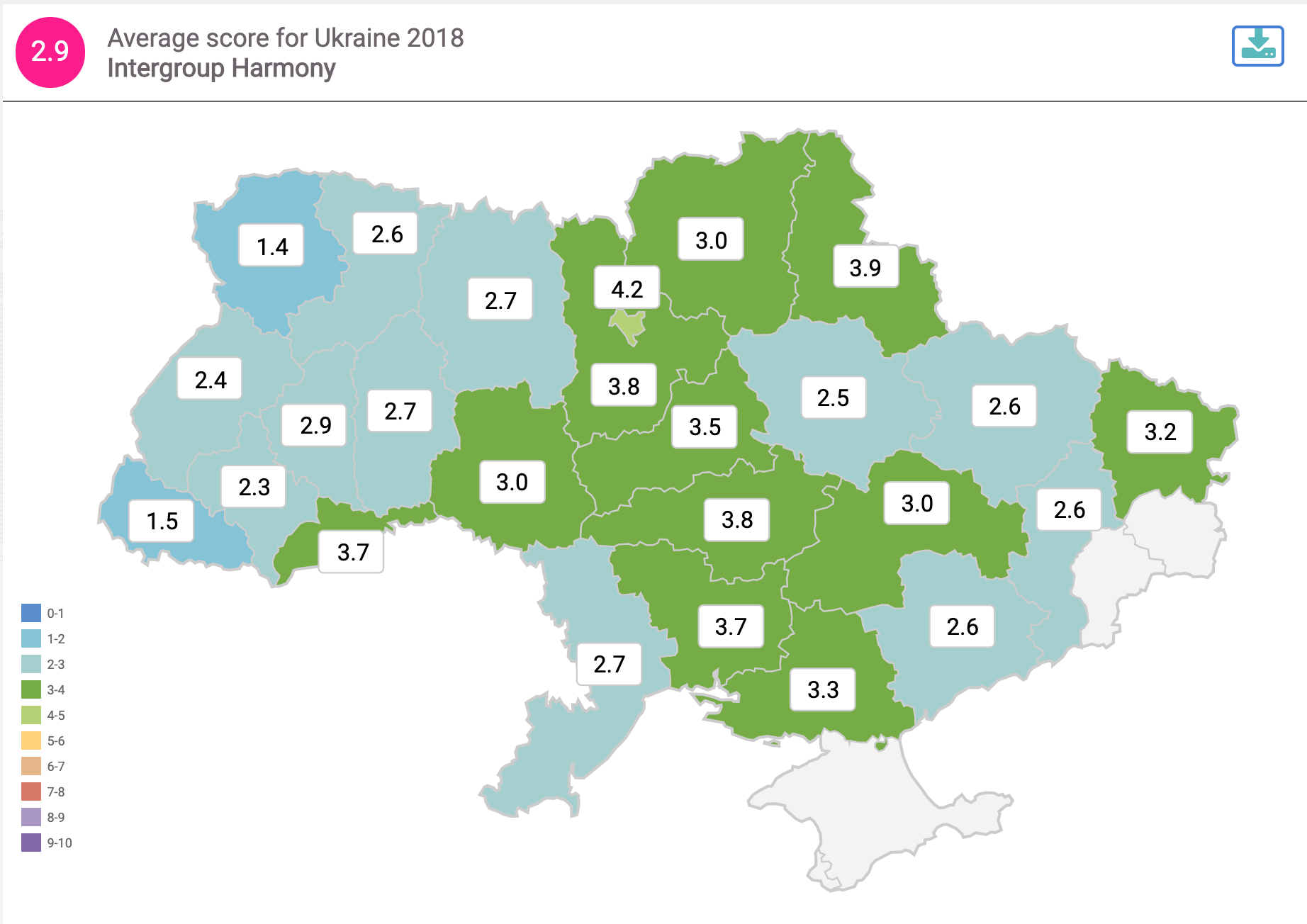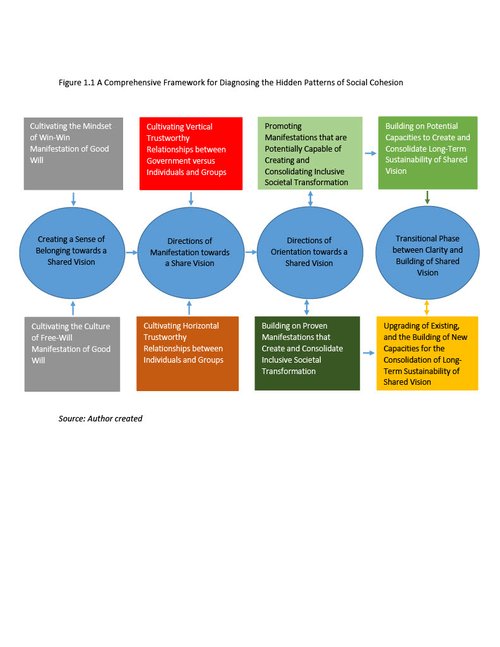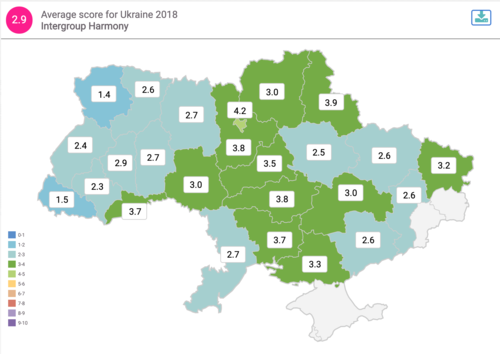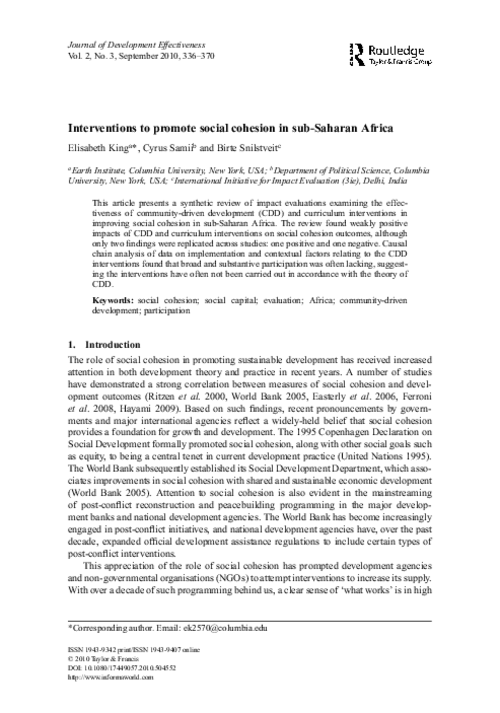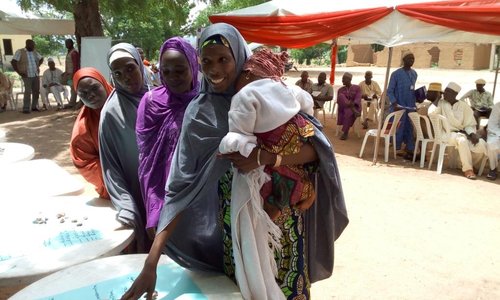SCORE Ukraine & SCORE Eastern Ukraine
Key facts
Identity/feeling of belonging
Participation
Equality/Inequality
Orientation towards the common good
Solidarity
Shared values
Cooperation
Tolerance
Connectedness
Other (life skills, civic attitudes, psychosocial assets)
Vertical dimension (between individuals or groups and institutions)
Overview
Nation-wide and regional household surveys with over 9,000 people
SCORE Ukraine (2015-2016)
In 2015, SeeD was invited to calibrate the SCORE Index in Ukraine, by the USAID/OTI supported program “Ukraine Confidence Building Initiative” (UCBI) to address the issues underpinning community tensions and cohesion. The first wave of SCORE Ukraine was conducted between August 2015 – December 2016, with a nation-wide sample of over 7,700 respondents, plus a booster sample of 1,600 Internally Displaced People. Findings can be accessed here, and the related publications and policy briefs here.
SCORE Ukraine (2017-2018)
The second wave of SCORE Ukraine, in partnership with USAID/OTI and UCBI, was re-calibrated in the summer of 2017 with stakeholder consultations and 8 regional focus groups. The fieldwork was deployed in January 2018 with a nation-wide sample of over 9,018 respondents, 6,102 of which were part of the panel sample. This allowed for longitudinal and comparative research that provided temporal analysis in order to monitor key indicators as well as to better understand of socio-political dynamics and trends relating to social cohesion. Findings can be accessed here, and the related publications and policy briefs here.
SCORE Eastern Ukraine 2017 (a.k.a UN SCORE for Eastern Ukraine (USE))
SCORE Eastern Ukraine was implemented in partnership with SeeD, UNDP, UNICEF and IOM. The results were based on a sample of 5,429 respondents from five oblasts in eastern Ukraine for a more granular and regional understanding of cohesion and reconciliation dynamics. It also included an Expert Scoring component based on 72 face-to-face in-depth interviews with two local experts in each of the raions in Donetsk and Luhansk oblasts. Findings can be accessed here, and the related publications and policy briefs here.
SCORE Eastern Ukraine 2018 (a.k.a UN SCORE for Eastern Ukraine (USE))
The second wave of SCORE Eastern Ukraine was also was implemented in partnership with SeeD, UNDP, UNICEF and IOM. It was based on a survey of 5,344 respondents from five oblasts in eastern Ukraine. It also included a booster sample of 700 respondents living along the line of contact in Donetsk and Luhansk oblasts. Findings can be accessed here, and the related publications and policy briefs here.
SCORE Eastern Ukraine 2019
The third wave of SCORE Eastern Ukraine was funded by the USAID, implemented by SeeD in partnership with the Democratic Governance in the East Programme and UN Recovery and Peacebuilding Programme, and boasts the biggest sample size to date, with 9,054 respondents from two oblasts in Eastern Ukraine. Main component consists of 3,325 respondents from government controlled areas and 619 in non-government controlled areas of Donetsk and Luhansk oblasts, as well as a booster sample of 1,810 respondents living along the contact line, 300 from ATO veterans, and an urban booster including 3,000 respondents from the 15 selected cities. The data was collected in October-November 2019. Findings can be accessed here, and the related publications and policy briefs here.
